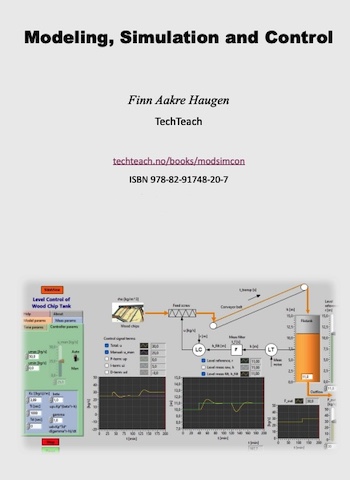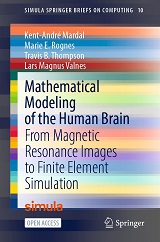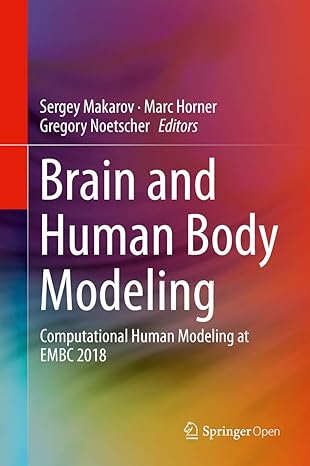
|
FreeComputerBooks.com
Links to Free Computer, Mathematics, Technical Books all over the World
|
|
- Title: Modeling, Simulation and Control
- Author(s) Finn Aakre Haugen
- Publisher: TechTech; eBook (Online Edition)
- Paperback: N/A
- eBook: PDF (897 pages)
- Language: English
- ISBN-10: N/A
- ISBN-13: N/A
- Share This:

|
The main topic of this book is automatic control – how to use controllers, which in practice are special computers – to automatically manipulate mechanical, thermal, chemical, or electrical procesess so that they behave as you want, i.e. they follow specified references (setpoints) despite disturbances from the process environment.
About the Authors- N/A
- Control Theory and Systems
- Computational and Mathematical Simulations and Modeling
- Differential Equations and Dynamical Systems
- Numerical Analysis and Scientific Computing
- Applied Mathematics

- Modeling, Simulation and Control (Finn Aakre Haugen)
- The Mirror Site (1) - PDF
- Modeling, Simulation and Control Of Nonlinear Engineering Dynamical Systems (Jan Awrejcewicz)
-
 Control Theory Tutorial: Illustrated by Software Examples
Control Theory Tutorial: Illustrated by Software Examples
This open access book introduces the basic principles of control theory in a concise self-study guide. It complements the classic texts by emphasizing the simple conceptual unity of the subject. A novice can quickly see how and why the different parts fit together.
-
 Mathematical Modeling of the Human Brain
Mathematical Modeling of the Human Brain
The book bridges common tools in medical imaging and neuroscience with the numerical solution of brain modelling PDEs, covers the basics of magnetic resonance imaging and quickly proceed to generating first FEniCS brain meshes from T1-weighted images.
-
 Brain and Human Body Modeling: Computational Human Modeling
Brain and Human Body Modeling: Computational Human Modeling
This open access book describes modern applications of computational human modeling with specific emphasis in the areas of neurology and neuroelectromagnetics, depression and cancer treatments, radio-frequency studies and wireless communications.
-
 Modeling Neural Circuits Made Simple with Python
Modeling Neural Circuits Made Simple with Python
An accessible undergraduate textbook in Computational Neuroscience that provides an introduction to the mathematical and computational modeling of neurons and networks of neurons in Python. Build a foundation for modeling Neural Circuits.
-
 Modeling Creativity - Case Studies in Python (Tom De Smedt)
Modeling Creativity - Case Studies in Python (Tom De Smedt)
This book is to model creativity using computational approaches in Python. The aim is to construct computer models that exhibit creativity in an artistic context, that is, that are capable of generating or evaluating an artwork (visual or linguistic), etc.
-
 Solving PDEs in Python: The FEniCS Tutorial I (H. Langtangen)
Solving PDEs in Python: The FEniCS Tutorial I (H. Langtangen)
This book offers a concise and gentle introduction to finite element programming in Python based on the popular FEniCS software library. Using a series of examples, it guides readers through the essential steps to quickly solving a PDE in FEniCS.
-
 Modeling and Simulation in Python (Allen B. Downey)
Modeling and Simulation in Python (Allen B. Downey)
This book is an introduction to physical modeling using a computational approach with Python. You will learn how to use Python to accomplish many common scientific computing tasks: importing, exporting, and visualizing data; numerical analysis; etc.
-
 Numerical Simulations of Physical and Engineering Processes
Numerical Simulations of Physical and Engineering Processes
The book handles the numerical simulations of physical and engineering systems. It can be treated as a bridge linking various numerical approaches of two closely inter-related branches of science, i.e. physics and engineering.
-
 Scaling of Differential Equationsn (Hans Langtangen, et al.)
Scaling of Differential Equationsn (Hans Langtangen, et al.)
Scaling is a classical topic in applied mathematics, but here strongly connected to numerical simulations. The book contains a wide range of examples, of differing complexity, from many different scientific fields.





